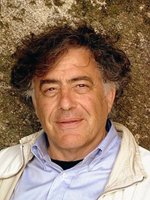Larry Wangh's disease detection technology to add sepsis testing
LATE-PCR is a molecular biology technique that replicates DNA

Larry Wangh
After years spent researching and improving polymerase chain reaction (PCR), a molecular biology technique that replicates DNA from a single gene or gene fragment, biologist Larry Wangh succeeded in eliminating the inaccuracies that plagued the technology, and patented a new and improved technology called Linear- After-The-Exponential PCR, or LATE-PCR. Interested in this platform technology’s promising application in detecting biowarfare agents, animal and human infectious diseases, and cancer, UK-based Smiths Detection began a long-term partnership with the Wangh lab several years ago, making substantial investments in the lab along the way, and eventually licensing its LATE-PCR technology.
Now, Smiths Detection, a leader in threat detection and screening for military, transportation, medical, and homeland security applications, has announced it has won a grant from the National Institutes of Health to develop a sepsis test in collaboration with Wangh’s laboratory. Sepsis, or blood poisoning, is the leading cause of death in non-coronary intensive care units, according to Smiths Detection.
“We’re designing the assay and building the initial version of it, without using selected gene targets from pathogenic organisms,” said Wangh. “We expect to have an initial assay in about eight months, but it’s highly complex: there are at least eight different organisms that cause sepsis, and there are multiple strains of each organism.”
He said his lab’s goal is to design a single test that definitively distinguishes among the eight pathogens. Moreover, the test will provide results in less than two hours and be usable by hospital personnel who are not highly trained.
Read the story.





